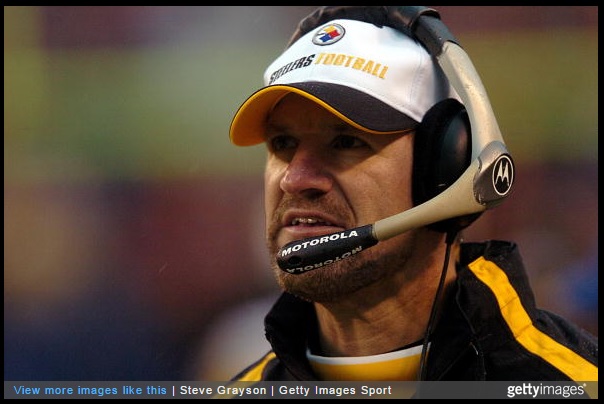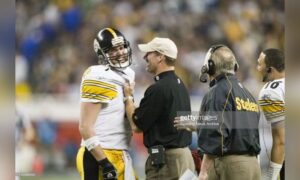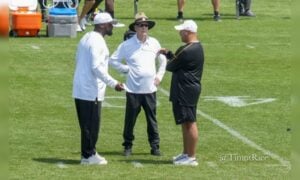A hallmark of the Pittsburgh Steelers is the franchise’s consistency. From the ownership of the Rooney family dating back to 1933, to having just three coaches since 1969, to a streak of 17 seasons with a record at or above .500.
One of the biggest reasons for that consistency is a man who will be enshrined in the Pro Football Hall of Fame in early August: Bill Cowher. After the 23-year tenure of Hall of Fame Chuck Noll, the franchise faced a crossroads, and needed the right person to inherit the head coaching job from one of the greatest coaches in NFL history. The Steelers deemed Cowher that man, and Cowher proved them right with winning seasons in 12 of his 15 years running the team, 10 playoff appearances, two Super Bowl appearances, and one Lombardi Trophy.
Facing immediate pressure in replacing such a legend as Noll, Cowher led the Steelers to the postseason his first six seasons. In a media interview Tuesday ahead of his Hall of Fame enshrinement, Cowher took himself back to his earliest days in the building as the new Chuck Noll.
“You follow a guy like Chuck Noll, I don’t even think there’s any pressure, because you’re not going to even come close to doing what he did in terms of his run he had in the 70s, and what he did for the city of Pittsburgh and rejuvenating that whole city. So really for me it was just coming in there, understand what the dynamics were in the building,” Cowher said. “A lot of things that we saw, you heard about it, it was a mystique of the Pittsburgh Steelers, and I just remember each year as I got in there, it was just trying to understand what the culture was like, what the dynamics were like, and you would try to work within that.”
Growing up in Crafton as a Pittsburgh native, Cowher was attending Carlynton High School nearby when the franchise won the first two of its four Super Bowls in the 70s. That and the years before it were part of a 13-year stretch of seasons with records of .500 or better, where the Steelers under Noll established themselves as one of the most successful franchises in the league.
The culture was that of winning, and one that reflected the attitude of the people and city it called home. Inheriting the mantle from Noll, Cowher said he only wanted to keep the success going, without changing what made the Steelers so beloved in Pittsburgh.
“Growing up there four miles from Three Rivers Stadium and now Heinz Field, I came back there and I knew what the culture of the fans were, the fan base was. I understood that because I grew up there, I watched it happen. And so to me, it was just about putting out a product each and every year that was consistent and reflected the city of Pittsburgh. We wanted to be tough, we weren’t going to beat ourselves. We want to be kind of a guy, we’re going to come in with our lunchbox and just do our job, and at the same time knowing that we represent the city,” Cowher said.
“It wasn’t so much about building on anything. To me it was about what we represented. And we represented a family that had the perfect culture and you had the perfect values, core values. And so our football team also represented that.”
Cowher left the franchise as good as he found it when taking over in 1992. The first three years of the team’s current 17-year streak without a losing record came under his leadership, and the team’s course remained the same from the transition from Cowher to Tomlin as it did from Noll to Cowher.








